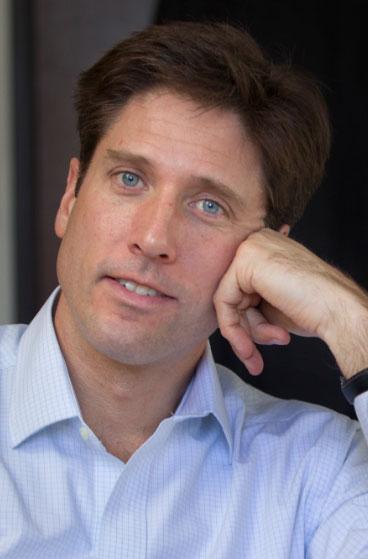
Stanford professors receive top honor from sociology journal for speed dating paper
Stanford Professors Daniel McFarland, of education, and Dan Jurafsky, of linguistics, are the recipients of this year's Roger V. Gould Prize from the American Journal of Sociology for their paper analyzing social connections and what makes people click.
The prize is awarded to the AJS article that, according to the editorial board, "best exemplifies the qualities that made Gould's work so remarkable" _ empirical rigor, theoretically grounded and lucidly written. It carries a $3,000 award.
McFarland and Jurafsky said they were pleased to receive the honor, and noted that the paper is a good example of interdisciplinary research at Stanford.
"Throughout our collaborations, we’ve focused on ways to combine insights from linguistics, sociology and computer science to help interpret the ways that language offers subtle cues to social meaning," Jurafsky said. "It’s terribly easy for interdisciplinary research to fall through the cracks so it was really unexpected and hence especially gratifying that our paper won the Gould prize."
The piece, "Making the Connection: Social Bonding in Courtship Situations," analyzed the conversations of heterosexual couples during speed dating encounters to find out why some people felt a sense of connection after the meeting and others didn't.
The study found that the way words are delivered, when and for how long, make a difference to how people feel toward each other, and in the study's case, whether the men and women sensed that they "clicked" during their encounter.
"Social bonds are central to nearly every facet of the social sciences and to every educational effort," said McFarland. "How can someone learn if they don't relate to the teacher, their peers or the material? How can we coordinate behaviors or perform a group task if they can't relate to each other?"
McFarland said the paper presented many challenges, including coming up with a good (and efficient) way to analyze the data: hours and hours of recordings.
"I quickly realized it would take me 20 years to study the actual recordings and transcripts in endless details," McFarland recalled. "So - knowing it was Stanford where interdisciplinarity is encouraged - I looked across campus for collaborators studying language."
McFarland teamed with Jurafsky and Craig Rawlings of the University of California, Santa Barbara. He said as they did the research they published a series of computational linguistics papers.
"It's incredibly gratifying to see the social science paper result, and not only get widely read and cited but also to win such a great prize," McFarland said.
He noted that the collaboration with Jurafsky, in many ways, led to the founding of computational social science at Stanford.
The prize is named for Gould, the editor of the AJS from 1997-2000 and professor of sociology at University of Chicago and Yale University. He died in 2002.



